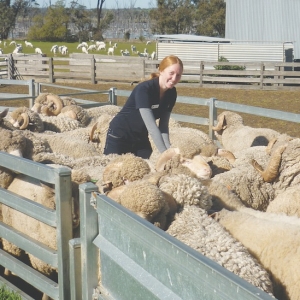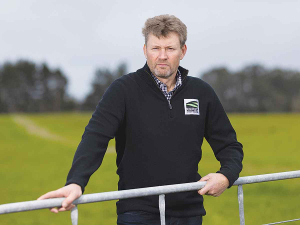NEW STRATEGIES for targeted treatment to control scour worms (Trichostrongylus spp.) in sheep are being developed in Australia to avoid drench resistance.
Murdoch University post-graduate student Meghan Cornelius says
the approach reduces the direct
cost of drenching and has the potential to prolong the effectiveness of chemical products before resistance develops.
The project includes field experiments with close monitoring of body condition, body weight and worm egg count to compare the production responses between treated and untreated sheep.
Sheep with body condition scores (BCS) of about three or above, one being extremely lean and five carrying excessive fat, are able to tolerate moderate worm burdens and are less likely to require drenching than animals in poor condition.
Cornelius says depending on the degree of severity of worm burdens, producers may be able to leave those sheep with the higher condition scores in the flock without treatment, which will minimise input costs and save valuable time for farmers.
“They can then focus on targeting the lower condition score sheep (< BCS 3) which we believe are less resilient and far more likely to be adversely affected as a result of scour worm burdens,” she says.
With drench resistance becoming more prevalent and the higher cost of new combination drenches, employing resistance management strategies is critical to the long-term cost of managing parasites.
While the strategy of targeted treatment is relatively new, Cornelius says it is very important to understand that every property is different and that the same worm management strategies are not suitable for every environment.
The decision to use targeted treatment strategies needs to be made flock-by-flock, she says.
“Further research is determining how many sheep with higher condition scores we can leave in a mob before there is a negative impact on whole flock productivity.”
The scour worms thrive in temperatures ranging 16-30° C with moisture present, larvae developing in faecal material, then moving onto pasture ready for sheep to ingest.











